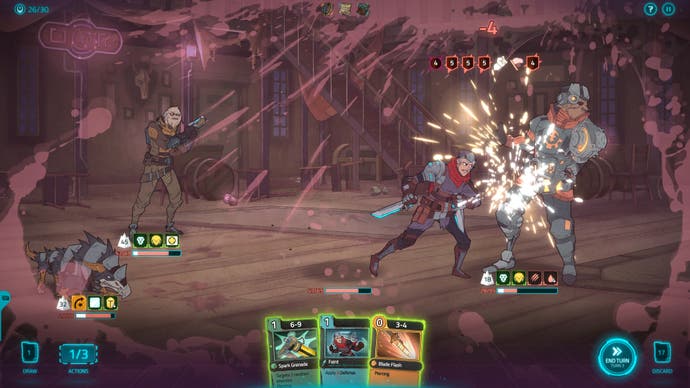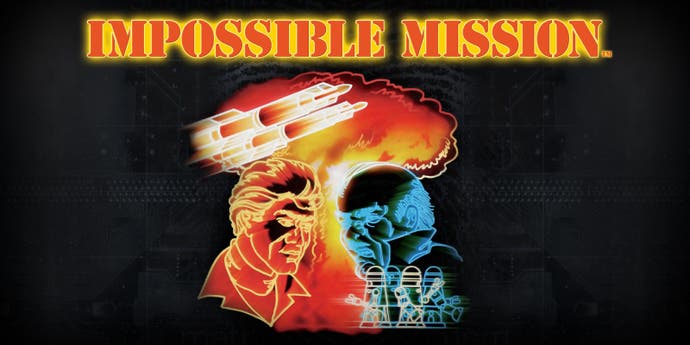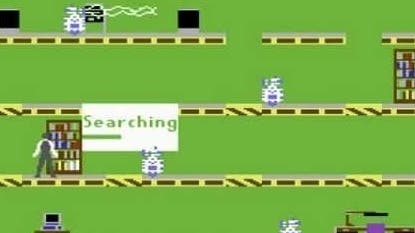What we've been playing
A few of the games that have us hooked at the moment.
11th of June, 2021
Hello! Welcome back to our regular feature where we write a little bit about some of the games we've found ourselves playing over the last few days. This time: Skis, cards, and impossible missions.
If you fancy catching up on some of the older editions of What we've been playing, here's our archive.
Steep, PC
Steep is one of those beautiful games that lives so luxuriously in the mind. Long runs, the swish of passing trees, the crunch of compacted snow. Ubisoft approached winter sports in a very Ubisoft way: what if you could have all of them at once? What if everything you did showered you with points? What if the map was almost implausibly vast? Going back into a game like this - a game I have such lovely memories of - feels a bit dangerous. What if I don't love it any more?
Gosh, though, I still love it. Everything in Steep is an event or a challenge. Everywhere is a point of interest or a fast-travel opportunity or a chance to go PvP and level something up. But where the game really comes alive, predictably, is when you turn your back on all that. Pick a starting point and just ski and ski and ski, downwards and downwards, chaining ice and snow and weaving around trees and ending up somewhere lonely and beautiful, somewhere that you know you'll never find again if you go looking for it. That's Steep. And it still lives luxuriously in the mind.
Chris Donlan
Griftlands, PC

Someone recommended this to me by saying, "I'd even go so far to call it the Hades of the Roguelike deck-builders," which is quite some claim! But I can see what they mean. Griftlands has swagger. A lot of this you can see at a glance. The illustrative artwork is bursting with style, and it's brought to life with great verve and charm. I love how you gabble to other characters in an alien language. It might seem like a little thing but it's one of many things that makes the world seem so believable. Griftlands is crisp, it's zippy, it's wonderfully put together.
But what really makes it stand out as a deck-builder is that it's not all about combat. You have two decks of cards in the game: one for combat, yes, but another for negotiation. This is a whole different encounter type. Imagine if someone gamified a dialogue scene in a BIoWare game: it's a tiny bit like that. It works in a broadly similar way: you play cards to create arguments and attack your opponent's arguments (and there's a lovely animation which goes with this, as your character acts out the corresponding arguments on the cards as you play them.) It's more complex than I've got time to go into here, but suffice to say it works brilliantly. More importantly: it finally gives a game another active gameplay system, besides combat, to pull on. It's a stroke of genius.
Bertie
Impossible Mission, Vita

It feels really great to play Impossible Mission on Vita. It feels great to play Impossible Mission at all, in fact. Dennis Caswell's C64 action game is one of the first games I ever saw, and the first for sure that really drew me into its world. You're a gymnastic super-spy infiltrating the complex underground lair of a man who wants to blow up the world for some fairly relatable reasons. You hop about looking for pieces of computer punchcard that will allow you to access the villain's inner sanctum. Get to it.
So much about this game is great. Non-violence for starters! The place is filled with deadly robots, but the most you can do to them is put them to sleep for a few seconds using a computer terminal. Otherwise you're just jumping around them and trying to avoid them as you search through 1980s furniture for the punchcards. Then there's that furniture, of course - beautifully realised pixel art bookcases and stereo systems and speakers and arm chairs. This is a lair I could live in.
The reason why it's lovely to play this on Vita though is that the game's hero has a pocket computer that they use to do various in-game things. And as a kid, the idea of a pocket computer was incredibly appealing. I imagine that the hero's device looks a bit like a Vita, in fact. So the Vita version is doubly harmonious. What a wonderful game and a wonderful machine.
Chris Donlan









